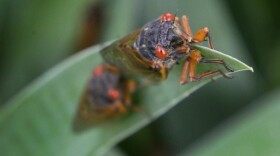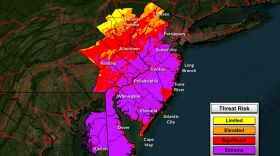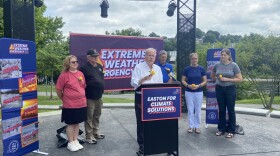-
Early Monday, the National Weather Service issued a winter storm warning in effect for the Lehigh Valley for 7 to 10 inches of snow, with locally higher amounts over the higher elevations.
-
One area of potential concern at the Allentown State Hospital had been the presence of dioxins in the soil. Dioxins are a group of toxic chemical compounds that take a long time to break down in the environment, and can cause health problems in people.
-
Betelgeuse is the red supergiant star at Orion’s ‘right shoulder.’
-
Lehigh and Northampton counties are under a winter storm watch in effect from 12 a.m. to 6 p.m. Tuesday, with 4 to 8 inches of heavy, wet snow possible.
-
Take a look at stories that ran throughout the week of which we are most proud, had a profound impact on readers or that you might want to look at again.
-
It’s a special year for cicadas, insects known for their high-pitched mating songs. Two adjacent broods are expected to co-emerge for the first time in 221 years. Here's the next time they emerge in the Valley.
-
Northern flying squirrels are endangered, and the Pa. Game Commission works to improve their habitat. A group went searching for the species in the Poconos.
-
Stanley cups have skyrocketed in popularity, following other trends in reusable drinkware. But, fads like these can encourage overconsumption, experts said.
-
Right now, the overall pattern isn’t very conducive to significant snowfall for the Lehigh Valley and the Mid-Atlantic next week. Here's what will make or break the event for snow lovers.
-
The state agency that promotes hunting in Pennsylvania has hired a lobbying firm run by a former top lawmaker using tens of thousands of dollars in public funds.
-
ALLENTOWN, Pa. - A large water main break in Western Allentown, Wednesday, April 29, left areas of the city without water or with low water pressure. The…
-
Organizations across the Lehigh Valley are celebrating the 50th anniversary of Earth Day - including the Wildlands Conservancy, which protects natural areas and waterways.
-
Four local colleges and universities are working together to mitigate 100% of their emissions from electricity consumption.


















